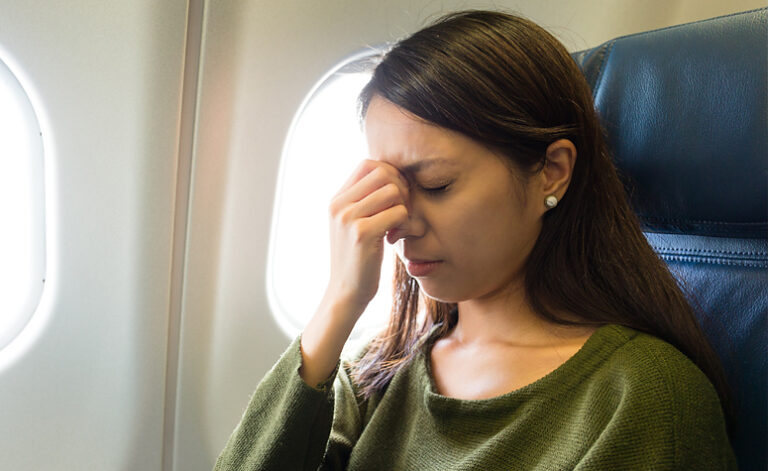Understanding and Treating Phobias
Fear is a normal emotion that every human being is subjected to multiple times in their life. But when that fear becomes something bigger, irrational, and debilitating that it disrupts one’s life, that’s when it morphs into a phobia.
Phobia comes from the Greek word phobos, which means fear or horror. Phobias are fears of objects, places, situations, animals, or emotions. While fear is normal, phobias go out of bounds and reach a certain threshold.
There are many physical symptoms to identify a phobia, but there are also some telling signs that affect a person’s overall life.
- Losing control when exposed to the fear trigger
- The source of fear becomes more extensive than the actual danger it poses
- Losing the ability to function normally in daily life
- The fear is not driven by another disorder
- Fear and irrational behaviour lasts for more than six months
The source of fear doesn’t have to be acknowledged as irrational or excessive by the person suffering from it. The bottom line is that exposure to the source of fear causes an irrational response from the individual.

Symptoms of a Phobia
Any kind of phobia will involve a combination of psychological and physical symptoms, with panic attacks being the most common of these. When directly faced with your phobia or even when just thinking about it, your brain automatically turns to its inbuilt natural reaction associated with the feared object or situation which is to panic.
Psychological symptoms
If you do suffer from a phobia that causes intense severity, you are likely to experience strong emotional difficulties and thoughts which may include the following symptoms:
- Fear of losing control
- Overwhelming feeling of dread
- Fear that you are going to die
- Fear of fainting
- Fear of experiencing the anxiety associated with the phobia
Physical symptoms
The distressing physical symptoms of dealing with a phobia are often more challenging than the fear of the object or situation itself. Situations which you find yourself in or when confronted with objects that trigger your phobia can come with overwhelming panic and anxiety. Some of the common symptoms which may occur are as follows:
- Shortness of breath and problems breathing
- Hot flushes or feeling very cold
- Sweating
- Trembling
- Headaches
- Dizziness
- Nausea
- Chest pains
- Feeling as if you are about to faint
- Confusion
- Dry mouth

Types of Phobias?
There are many kinds of different phobias, but according to the DSM-5, phobias fall into five key category areas:
- 1 .Situational phobia
This encompasses phobias about certain situations, such as driving, flying, heights, darkness, riding in an elevator, and enclosed or open spaces. - 2. Animal phobias
Animal phobias are fears surrounding different animals, with the most common being spiders, snakes and other reptiles. There are also fears surrounding animals that are not natural predators. - 3. Medical phobias
This kind of phobia is related to sickness, health, or the general medical procedure. This can be injections, broken bones, blood, and other medical issues. - 4. Natural environment phobias
Another phobia is related to the natural environment, such as lightning, thunder, rain, storms, and loud noises from the wind. - 5. Medical phobias
Last but not least, there are social phobias that are more related to cognitive and behavioural responses and a plethora of uncategorised phobias that don’t fit directly into any of the other above types.
There is no updated official list of phobias aside from the ones in DSM-5, and there are still so many phobias that are uncategorised because of their unique context.
According to research, women are two times more susceptible to experiencing phobia compared to men which also encompasses 13% of the population. While fear is a normal emotion that most people experience, the psychological drivers of phobias are far more different than your usual fear. Despite that, phobias can still be managed and treated with proper and specific care.

Treatment for Phobias
Phobias are personal, which means that their treatment is also specifically designed for a person’s unique situation. However, there are still common elements in treatment; they just differ in the ways they are employed.
Fear is a nebulous emotion, and it can become so overwhelming that it seems like all hope is lost. But phobias, though they may be debilitating, can still be treated or at least managed so you can live without the shadow of fear in your life.
Below are some of the treatments that can help you or a loved one deal with phobias.
Graded exposure
Graded exposure is an approach to addressing the source of fear through different steps. It could be done by imagining the fear first, then slowly exposing oneself to it until the body and mind are acclimated to it.
Another aspect of this treatment is interoceptive exposure, where the goal is to expose the body to sensations eliciting fear. Interoceptive exposure is explicitly used to help a person sit with their fears by activating them without avoiding the trigger.
It is also used to help people debunk their false beliefs around fear as they try to mimic the bodily sensations in the exposure. Lastly, this kind of technique helps inform the body and mind that bodily sensations around their fear can be separated.
Interoceptive exposure is done under the guidance of a therapist to create a safe and controlled environment for facing fear. It is gradually done to acclimate the body and mind and avoid triggering an avoidant response, which will only worsen the situation.
Alongside this, the different trigger responses will also be identified and challenged. This means identifying the usual coping behaviours that are not really helpful in facing the fear. With this in mind, the first step will usually involve imagining the source of fear before gradually exposing it in real-life situations.

The key to facing our fears is to take one
small step at a time and keep moving forwards
Cognitive behavioural therapy (CBT)
Cognitive behavioural therapy is an evidence-based and popular therapy approach because of its efficacy. It is rooted in the belief that unhealthy coping patterns can be treated by exploring the thinking patterns that cause the behaviour.
In treating phobias, some may be far more complex, especially when other psychological factors drive it, like trauma. Here, CBT is a great tool to help address the dysfunctional thinking patterns that drive fear. People will also learn how to combat these thought processes through different mental tools.
With this in mind, people can combat their fears without resorting to unhealthy coping patterns that only exacerbate them or will only give temporary relief.
Psychotherapy
Psychotherapy involves different kinds of therapy models like CBT, DBT, Acceptance and Commitment Therapy, etc. Through various types of approaches, the root cause of anxiety can be discovered, and different coping strategies can also be explored.
Through psychotherapy, one can understand what drives the phobia, why it exists, and how to reduce the fear associated with it. Here, the person can proactively challenge their negative thought processes through practical strategies.
Assessment of phobias is also crucial before deciding on a specific therapy approach, as this can involve other mental health disorders like anxiety and depression. If a person is found to experience other mental health issues alongside their phobia, then it will also be treated simultaneously.
Medication
Last but not least is medication-assisted therapy, where a person also takes other medication to manage symptoms while going through therapy. In such cases, people exhibiting extreme anxiety will also need prescribed medication.
People with anxiety and depression co-occurring alongside their phobias are given a type of anti-depressant called selective serotonin reuptake inhibitor (SSRI). Some other medications given to people for anxiety are benzodiazepines like Valium, which has a tranquilising effect. The key is to only use Valium or any benzodiazepine for a short time as it has a high potential for abuse.
Another medication type addresses physical symptoms like palpitations and tremors that lead to panic attacks. This kind of medication is called a beta-blocker, like propranolol, to reduce the physical symptoms and help with specific phobias. While medicines like this won’t necessarily “cure” the phobia, it is particularly helpful with situational phobias like going on a plane or driving.
FREE Phobia Assessment
If your or a loved one are struggling with a phobia, we understand the challenges you’re facing and we’re here to offer compassionate help.
Our highly trained advisers are available to speak to you right away, simply call 0808 252 3379 today.
We can discuss your concerns in complete confidence, explore the options for treatment, and help you to understand what will work best for you.
We’ll also help you to book your free phobia assessment there and then, with appointments usually available within only a few days.
We understand that taking the first step can be the most difficult, but we’re here to support – with no pressure or judgement.
Professional and compassionate help is just a phone call or click away.




